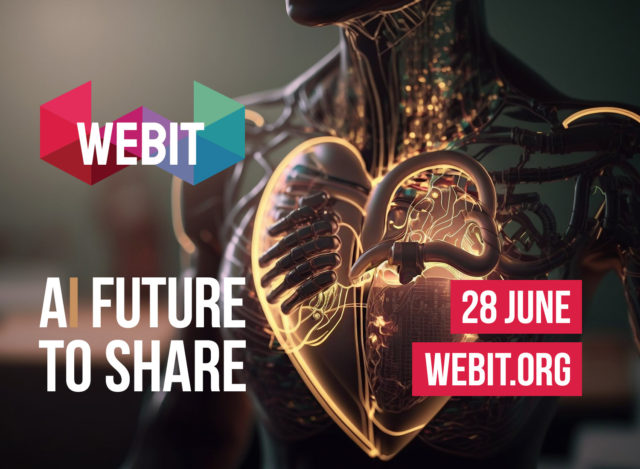The world of digital health is constantly evolving, with new technologies and trends emerging all the time. Webit Impact Forum 2023 (Summer Edition) on the 28th of June in Sofia will be an excellent platform to discuss the latest trends in digital health and explore how they can be used to improve healthcare outcomes. In this article, we will take a closer look at some of the latest trends in digital health.
1. Artificial Intelligence (AI) and Machine Learning (ML):
Artificial intelligence and machine learning are increasingly being used in digital health to analyze large amounts of health data and provide insights that can help improve patient care. For example, AI and ML can be used to analyze medical images to detect early signs of disease, or to predict patient outcomes based on their health history.
2. Telemedicine and Remote Monitoring:
Telemedicine and remote monitoring have become increasingly popular during the COVID-19 pandemic, as they allow patients to receive medical care from the comfort of their own homes. Telemedicine can also improve healthcare access for people who live in rural or remote areas, where access to healthcare providers may be limited.
3. Wearable Devices:
Wearable devices, such as fitness trackers and smartwatches, are becoming more advanced and sophisticated. These devices can track a wide range of health metrics, including heart rate, sleep patterns, and activity levels. Wearable devices can also alert patients to potential health issues and encourage healthy behaviors.
4. Virtual Reality and Augmented Reality:
Virtual reality and augmented reality technologies are being used in digital health to create immersive experiences that can help patients manage pain, anxiety, and other health issues. For example, virtual reality can be used to distract patients during medical procedures, or to provide exposure therapy for patients with phobias.
5. Blockchain:
Blockchain technology is being explored in digital health as a way to secure and manage patient data. In digital health, blockchain technology can be used to store patient health records, medical histories, and other sensitive information. It can provide patients with complete control over their own data, as they can grant or revoke access to their data to healthcare providers, researchers, or other authorized parties. This can help protect patient privacy and ensure that their personal health information is not shared without their explicit consent.
However, there are also challenges and limitations to using blockchain in digital health. One major challenge is the complexity of the technology and the need for specialized expertise to implement and maintain it. There are also concerns about the scalability of blockchain, particularly in healthcare systems that generate large amounts of data.
6. Personalized Medicine:
Personalized medicine involves tailoring medical treatment to an individual’s unique genetic, environmental, and lifestyle factors. Digital health technologies, such as genomics and data analytics, are being used to develop personalized treatment plans for patients.
The rapid advancements in digital health technologies are transforming the way we approach healthcare. From improving patient outcomes to reducing healthcare costs, these innovations have the potential to revolutionize the healthcare industry.
<img ” src=”https://blog.webit.org/wp-content/uploads/2020/03/panoramasm.jpg” alt=”” width=”100%” />
Webit Impact Forum (Summer Edition) on the 28 of June in Sofia, Bulgaria is a unique opportunity for healthcare professionals, policymakers, and industry leaders to come together to discuss the latest trends and innovations in digital health. By staying informed and up-to-date with these trends, healthcare providers can deliver better care to their patients and improve healthcare outcomes.
As digital health continues to advance, it has the potential to transform the healthcare industry, leading to better patient outcomes and a more efficient healthcare system.By sharing insights and knowledge, attendees can gain a deeper understanding of how these emerging technologies can be applied to real-world healthcare settings.
